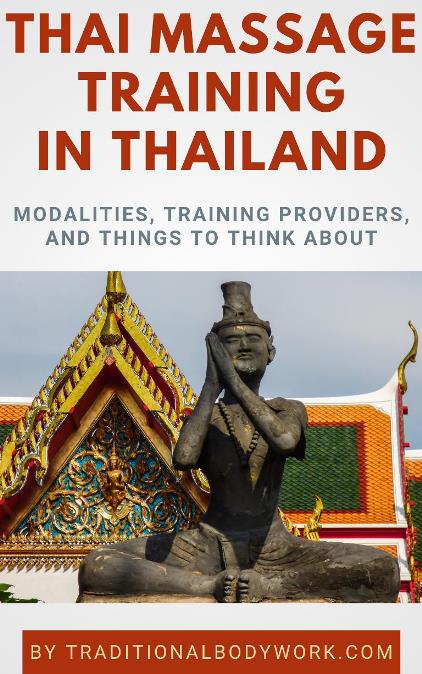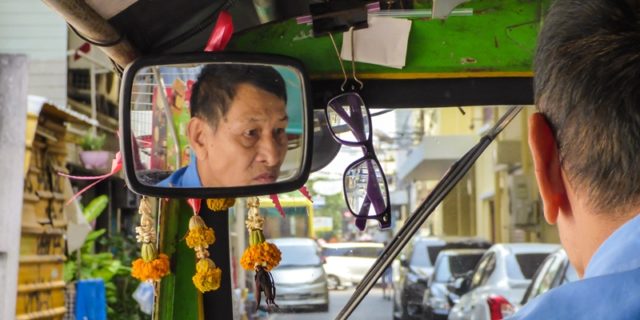
If you love to travel and are not blessed with an inheritance, you’ll most probably look for ways to travel cheap to extend your trips as long as possible, as well as ways to work abroad, for the same reason.
Teaching English as a second language in Thailand has become increasingly popular in the last years, and sometimes it’s seen as an easy, fun way to get some money while continuing to explore a foreign country and experience a different culture.
And it sure has its plus sides! You will definitely learn a lot about the country you choose to teach in, about the culture, and have really intense experiences with the locals. However, it’s far from being just “fun and easy” as sometimes advertised. Here are some aspects you need to consider before embarking on this crazy ride that is to teach English in Thailand.
Teaching Experience
If you are already a teacher in your home country, this of course makes it easier to adapt to teaching abroad, as you most likely already have a set of tools and methods to share your knowledge and help the students. On the other hand, if you are just getting your TEFL certificate and have no teaching experience at all, prepare to go through an intense learning period.

Teaching can be a joy, but most often than not it can take quite some time for you to find your way in the classroom, especially dealing with a completely different culture. Always try to understand the local culture, learn a few words in the local language and watch classes of other teachers to learn how to navigate in this new world.This seems like an obvious thing to say, but many people still think that “anyone” that speaks English can teach, but that of course we know is not the case.
In all countries that employ foreign teachers, being a native speaker is always a big plus, and sometimes even a strict requirement. In addition, being a native speaker will usually get you a higher salary — it’s thought that a person from a native English speaking country will be a better teacher.
This can be very far from the truth. Thick accents, and the fact that many English native speakers have never even learned another language, can actually hinder their ability of teaching and understanding what the students are going through — especially if they just got their TEFL certificate and have no teaching experience at all.
So, if you were never interested in teaching in the first place and just want to do it for the money and to be able to stay in the country, just be aware that there are tough challenges ahead.
Bureaucracy and Misinformation
Prepare to handle a crazy amount of paperwork and bureaucracy, starting with everything you need to have to get a job in the first place. The basic requirements to teach English in Thailand are: a college degree (in any kind of study); a TEFL/TESOL certificate; a TOEIC/TOEFL exam proving your proficiency in English (only for non-native speakers, and this is not a hard requirement because often times you can take the exam there after you’ve already started teaching); a criminal record check from your home country; and a medical check (needs to be done in Thailand).
Plus, teaching experience is always good to have and will improve your chances of getting a job. If you are from a country where English is not the first language, you will also need to translate all of these documents to English. If you are a native speaker, the schools can be much more relaxed – and anyway if the school is desperate for a teacher (due to the fact that many teachers they hire quit after a few days or don’t show up at all), they will not be so picky, even if you are a non-native English speaker.
After signing a contract with a school, you’ll need to obtain your non-immigrant Visa B. This means that you’ll be teaching illegally before you have the appropriate visa and the working permit, but, you can only get one after you have a signed contract with a school. In the ideal world you would sign the contract with a school while still in your home country and get a visa there before even flying to Thailand, but that’s almost impossible to achieve.
So, with a signed contract and all your paperwork and the paperwork the school provides you, you’ll need to leave the country at least one time to obtain your Visa B at a Thai Consulate abroad (Malaysia, Cambodia, or Laos are the most obvious routes), and you need to show cash (around 30,000 baht) or pay a bribe to the border police when reentering Thailand.
After you have your visa you’ll need to apply for your work permit, and the application is processed at the Ministry of Labor office (at least you don’t need to exit the country again!). After all that, there’s one more step, you’ll need to apply for a teaching license. Yup, again more costs and more thousands of copies of all your documents, plus anything else the Thai government starts requiring all of a sudden – they are notorious for changing the requirements frequently, and not even the schools and hiring agencies know what’s happening and often give you incorrect information. Meanwhile, you are probably already teaching for 5-6 months, officially but illegally.
This is just a quick list of things you’ll need to do just to get a job and regularize your situation. So, if you have no patience for bureaucracy, delays, corruption, misinformation… maybe this kind of job is not for you.
The Infamous “Culture Shock”
When looking for tips online about teaching English abroad, there’s often a topic about culture shock. The advice is to be prepared for it, but in reality, it’s impossible to be prepared for the avalanche of totally different world views and ways to behave and act that you will be faced with when starting to teach in a foreign country. My husband had already taught English in Thailand and had talked about his experience and warned me about the down sides, but I must say that it didn’t help me much to cope with the culture shock when I actually started working there.

The Thai Educational System can be quite different compared to how the West views and practices education.
The aspects that bothered me the most, were the lack of clear communication between the school and the teachers – as what is required, what is expected, etc. The language barrier is a big factor here, because most often than not, your “boss” at the school, the one who decides everything, may not speak English at all and you end up hearing about curriculum changes, new schedules, paperwork to be done, etc, from other people and always last minute and with no clear instructions.
This of course varies between schools, but I can assure you that this is a general characteristic that you will encounter in higher or lower levels in any given Thai school. It is expected of you and all of the teachers to be always happy and “go with the flow” – organization and preparing things in advance is often not a priority at all.
Another thing is that you get the strong feeling that you are only there for appearances. The fact that native speakers with no experience get hired quickly and with a much higher salary, and the fact that white, blue eyed teachers get a higher salary than let’s say—Indians or Filipinos (which are a big group of teachers in Thailand, and I must say, often times better than Westerners because they are used to Asian culture in general) is already revolting. Not to mention that any foreign teacher already gets a much higher salary than most of the Thai teachers. The whole thing is totally unjust (and racist) and it makes for an unpleasant working atmosphere.
And it is quite clear that quality is not really the focus, you need to act a certain way, never “lose face” or let your students lose face, make the students copy enough things in their notebook so their parents are happy to see it at home, never ask to many questions, etc. And also, you are obliged to pass all students, no matter what (really, it’s in the Thai law).
The students know this very well, and you can imagine that it results in the majority of them not being really interested in learning at all. And, since you (most likely) can’t speak their language, it’s extremely hard to really level with them and try to motivate them somehow. The general feeling is that it’s all make-believe: the teachers pretend to teach and the students pretend to learn.
And every time you try to really make a difference, change things, be stricter to try and really help the students learn, it will just backfire. If you start failing students, giving warnings because they always arrive late, it will end up being your fault. If the students don’t pass it will be the fault of the teacher, of course. And again and again you will hear that this is how things work in Thailand and that you can’t change the system. Finding a way of dealing with that can be quite difficult; it was for me at least.
I have seen that the majority of people who succeed in teaching English in Thailand are the ones who don’t take it too seriously, and don’t expect to really make a big structural difference. I believe that this depends a lot on your personality and your personal goals. Some teachers simply cannot take it; others will just do their jobs the best they can, maybe even find a way to love it, and if not, just count the days to the weekend.
My Experience Teaching in Hat Yai, Thailand
I taught Conversation classes to Lower Secondary (Mathayom 1-3, which means 13 to 15-year-old teens) at a public school in the city of Hat Yai (South of Thailand). It was a 40-hour job, and I was given 11 groups, with classes of 50 minutes twice a week (so about 20 hours of contact-time per week) and the rest of the time was for planning classes, general bureaucracy, meetings, etc.
I started at the end of October (beginning of the second semester in Thailand) and managed to stay until the beginning of January, enough to finish the first half of the semester, grading the 200+ tests of all my students and giving a 2-weeks notice. I had planned to stay at least a year in Thailand, but after a few weeks I had already realized it would not work for me, unfortunately.
The most extreme case of teachers running away filled with shock was one I witnessed first-hand. Two teachers that started the semester with me quit after only 2 days. They had rented an apartment, bought new clothes and appliances, they were very determined to give it a go, but they were so shocked at how things work (or better, don’t work) at the school and in the classroom, that they couldn’t take more than 2 days.
It’s a fact that people who are not prepared and not aware of what it really means to teach in Thailand only cause problems for the schools. They quit or runaway after a very short time, forcing the school to look for a substitute as soon as possible; the students get used to teachers disappearing all the time and this makes it harder to create real rapport with them; and at the end of the day, most of them are simply not prepared or don’t know how to do what’s expected from them, the “Thai way”.
So what baffles me the most is that the schools and agencies still do absolutely nothing to inform future teachers better before hiring them, or help them on the way. This ends up being bad for everyone involved.
There was an implicit assumption from the school that I should know everything and not bother asking too many questions — the answers were given so incomplete and unwillingly anyway that it already discouraged me. I was told that there was a textbook and syllabus for the subject I was teaching, but there was not and I needed to create everything in super short notice, and I didn’t even get a tour of the school or something, it was not a really welcoming environment.
These are just a few examples which separately are not really a big problem but when all these small things start to pile up, it can become unbearable. In fact, it seems like the country continues to sell the idea that teaching in Thailand is super fun and effortless, and you’ll have plenty of time to enjoy the beaches – which is really not the case for most of the foreign teachers, at least. And there are much worse stories to be heard, of people not getting payed, or not being allowed to leave the country without a letter from the school, and the list of bad experiences goes on.
Making an Informed Decision
Finally, I really don’t want to discourage anyone to teach English abroad. It is an amazing experience, for those who truly want it. And even if you are not prepared or end up not liking it, it will still give you valuable insights about yourself and what it truly means to live and work abroad, being fully immersed in a totally different culture.
But I have seen and heard the stories of so many foreigners — Westerners mainly — that end up in Thailand with no clue of what to expect, thinking it will be a breeze, and then end up quitting the next day or next week, so I think this is an issue that needs to be addressed. Most people that have had bad experiences teaching abroad end up not sharing them, so that can give the impression that everything is just great and there are not many challenges.
When deciding on a life-changing move like this that will cost you a lot of effort and quite some money as well, I believe it’s always best to look at this from different sides and understand the challenges ahead. Thus, take into consideration all the information above, so that you can evaluate if teaching in Thailand is really for you and make an informed decision.














